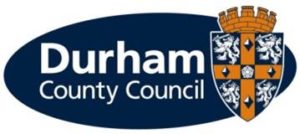 Many young people in County Durham are not achieving as much as they should as they make their journey towards adulthood. While much support is lent to young people to achieve their potential, it falls unevenly – too often being focused upon those who already have many advantages.
Many young people in County Durham are not achieving as much as they should as they make their journey towards adulthood. While much support is lent to young people to achieve their potential, it falls unevenly – too often being focused upon those who already have many advantages.
Recognising that this was unacceptable, Durham County Council commissioned this research via the Institute for Local Governance in 2016 to start a debate in the County on how to achieve more for young people from less advantaged backgrounds. There is widespread belief in the UK that young people from less-advantaged backgrounds are less likely to make successful transitions to adult life because they lack aspiration and ambition.
Over-simplified explanations such as these are readily backed up with examples, garnered from observation and experience, which serve to reinforce falsehoods. With sufficient repetition these falsehoods start to ring true. To instigate discussion across all sectors, this study was undertaken to hold up a mirror to County Durham, and ask policy makers and practitioners to look again at the situation of young people and challenge popular narratives about young people’s presumed lack of aspiration and ambition.
Policy makers and practitioners are encouraged to consider critically the differences between ‘aspiration’ and ‘ambition’; ‘attitudes’ and ‘behaviours’; ‘attainment’ and ‘achievement’, and most crucially, ask questions about what constitutes ‘success in life’ for young people from different starting points. By doing so, it is hoped that organisations in the education, public, private and voluntary sectors will be able to focus their resources individually or in complementary ways on those young people who are most in need of support.
Professor Tony Chapman, Dr Tanya Gray, Dr Stephanie Rich and Paul Braidford were commissioned by the Institute for Local Governance to undertake a project on young people’s ambitions and aspirations in County Durham.
The report was launched on 29th March 2019 at an event at Bishop Auckland Town Hall which was opened by the Bishop of Durham, the Right Reverend Paul Butler.
A summary report on the project can be downloaded here: Tackling barriers to young people’s aspirations and ambitions in County Durham SUMMARY REPORT March 2019
The full report can be downloaded here: Understanding barriers to young people’s aspirations and ambition in County Durham (full report March 2019)
The event presentation can be downloaded here: Understanding barriers to young people presentation March 29th 2019

 County Durham Economic Partnership commissioned research via the Institute of Local Governance, to start a debate in Durham on how to achieve more for young people from less advantaged backgrounds.
County Durham Economic Partnership commissioned research via the Institute of Local Governance, to start a debate in Durham on how to achieve more for young people from less advantaged backgrounds.
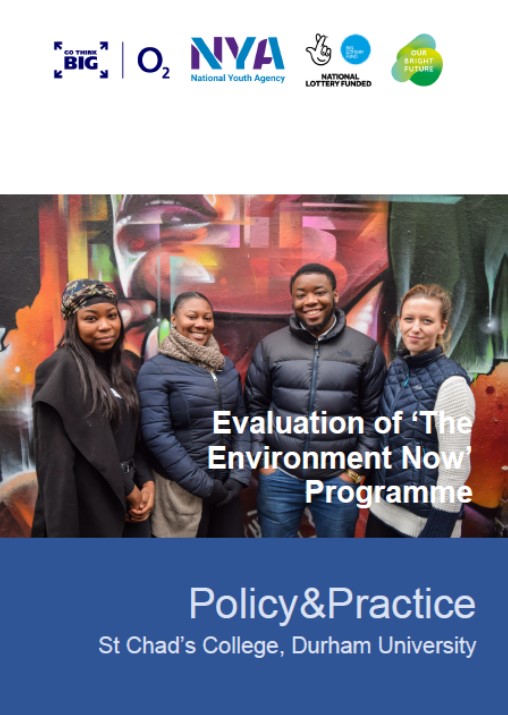 Our Bright Future allowed the NYA to to work intensively with young people over three years developing environmental projects. Funding was awarded to undertake 50 projects devised and run by young people who were, in turn, supported and trained through a comprehensive programme to develop their sustainability learning, employability skills, digital understanding and self-confidence.
Our Bright Future allowed the NYA to to work intensively with young people over three years developing environmental projects. Funding was awarded to undertake 50 projects devised and run by young people who were, in turn, supported and trained through a comprehensive programme to develop their sustainability learning, employability skills, digital understanding and self-confidence.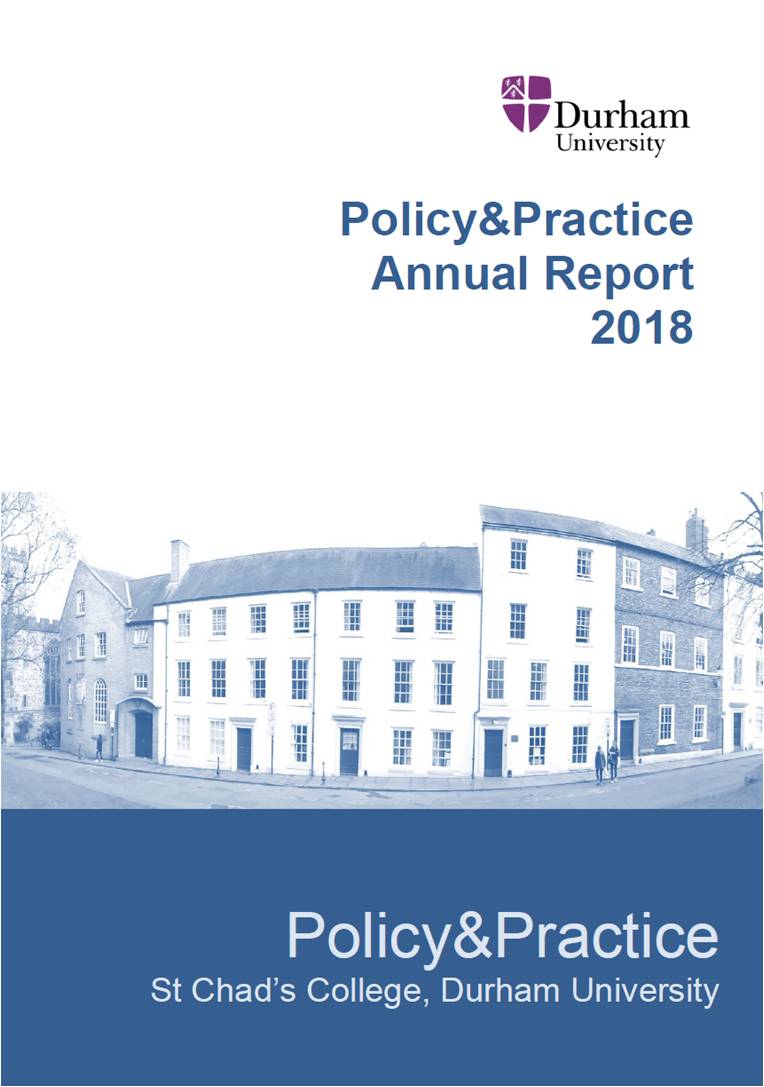 Several more reports have been published this year from the Third Sector Trends study – which will start its fifth round of surveys in 2018 – representing over ten years of intensive study. Two studies were published with IPPR North with groundbreaking data on the contribution of business to the third sector and on the value of volunteering to local charities. A study was also published on community business as a prelude for more intensive research in 2019 for Power to Change. The Third Sector Trends project, which covers the whole of the North of England has become increasingly influential on thinking about how best to support and fund charities in the North.
Several more reports have been published this year from the Third Sector Trends study – which will start its fifth round of surveys in 2018 – representing over ten years of intensive study. Two studies were published with IPPR North with groundbreaking data on the contribution of business to the third sector and on the value of volunteering to local charities. A study was also published on community business as a prelude for more intensive research in 2019 for Power to Change. The Third Sector Trends project, which covers the whole of the North of England has become increasingly influential on thinking about how best to support and fund charities in the North.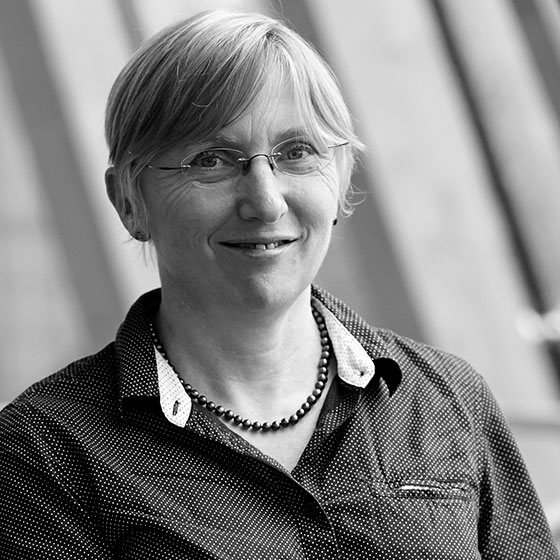 Professor Adams is an expert in integrated reporting, social and environmental accounting, sustainability reporting and developing strategy to address sustainable development. She is founding editor of the Sustainability Accounting, Management and Policy Journal and writes on her website at www.drcaroladams.net.
Professor Adams is an expert in integrated reporting, social and environmental accounting, sustainability reporting and developing strategy to address sustainable development. She is founding editor of the Sustainability Accounting, Management and Policy Journal and writes on her website at www.drcaroladams.net.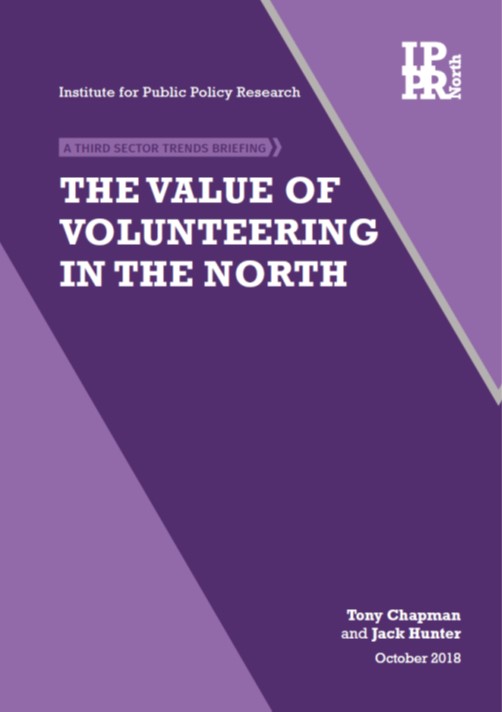 Based on research findings from the Third Sector Trends study, the report recognises that the volume of voluntary activity in the north is enormous – about 930,000 people regularly volunteer and deliver over 76m hours of work.
Based on research findings from the Third Sector Trends study, the report recognises that the volume of voluntary activity in the north is enormous – about 930,000 people regularly volunteer and deliver over 76m hours of work.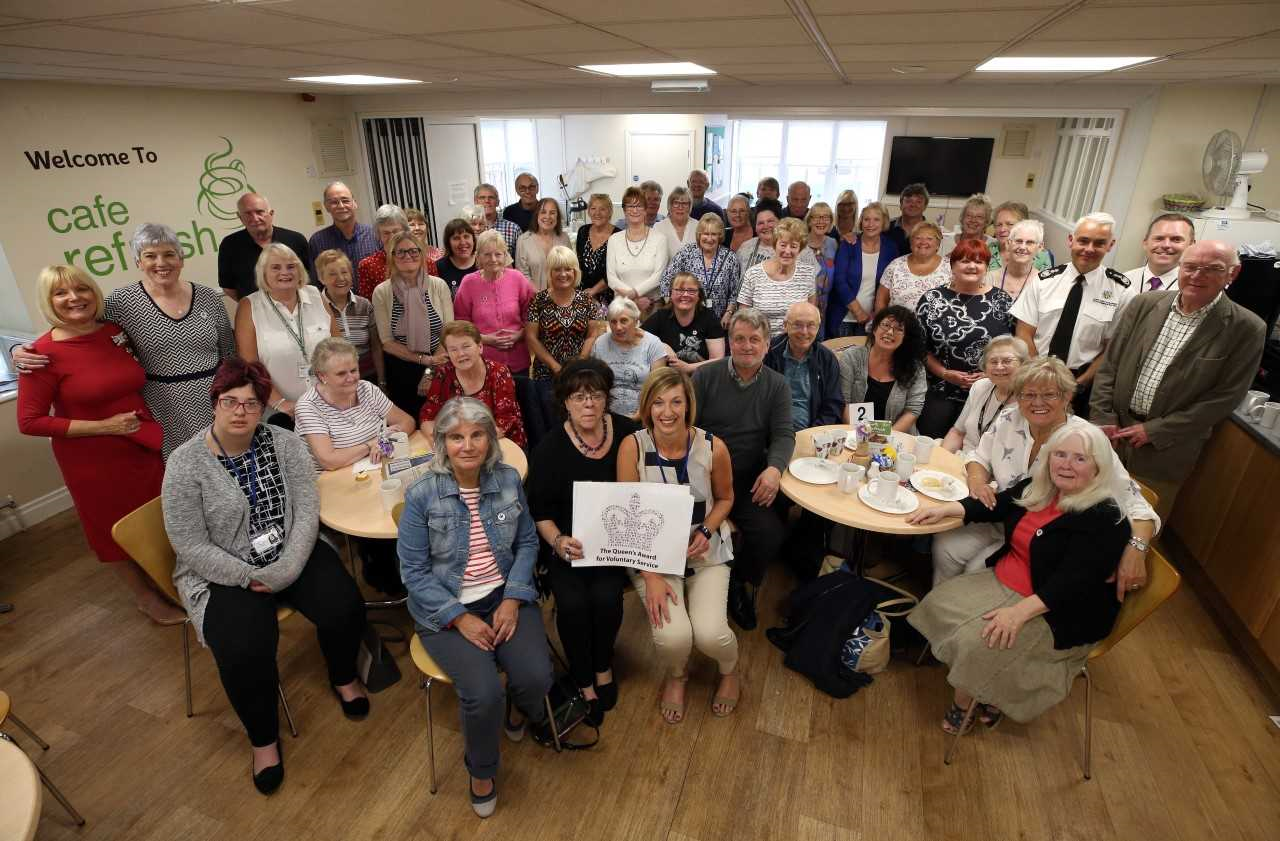
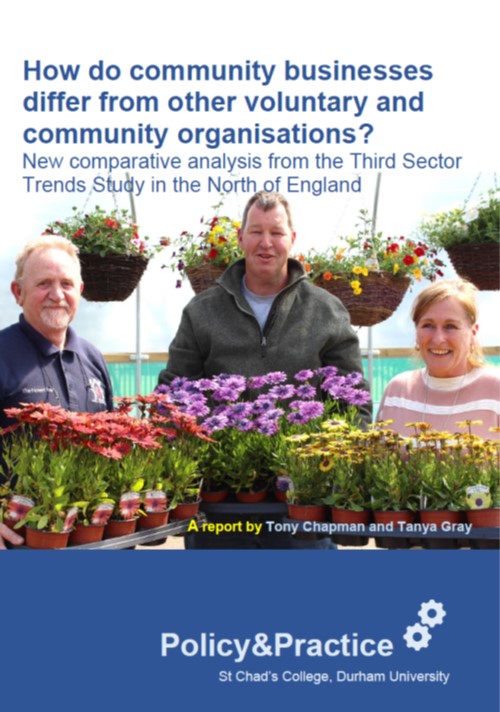 People are often confused by the complexity of civil society. For example there are so many ways of describing what is sometimes known as the ‘third sector’, ‘voluntary, community and social enterprise sector’ or ‘civil society sector’. This problem is compounded when we try to define specific types of organisations. Community business is a case in point: how are these organisations defined, and how do they differ from others such as social enterprises or community or voluntary organisations?
People are often confused by the complexity of civil society. For example there are so many ways of describing what is sometimes known as the ‘third sector’, ‘voluntary, community and social enterprise sector’ or ‘civil society sector’. This problem is compounded when we try to define specific types of organisations. Community business is a case in point: how are these organisations defined, and how do they differ from others such as social enterprises or community or voluntary organisations?